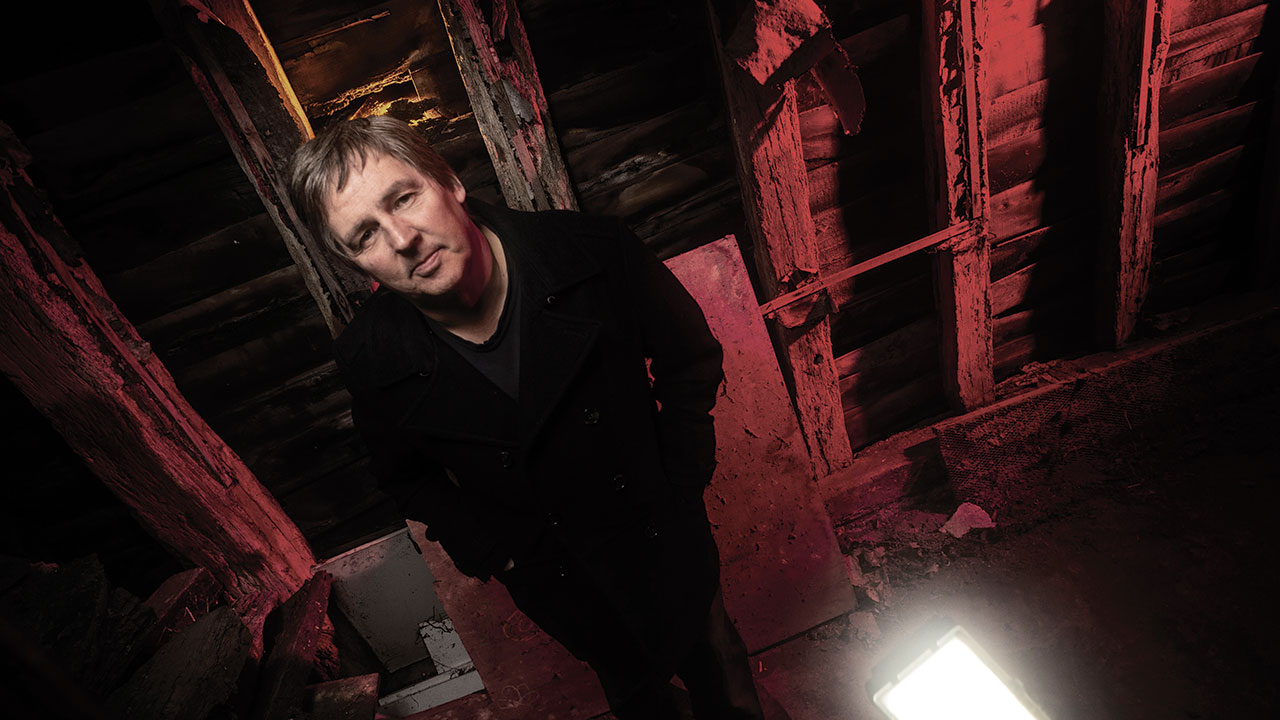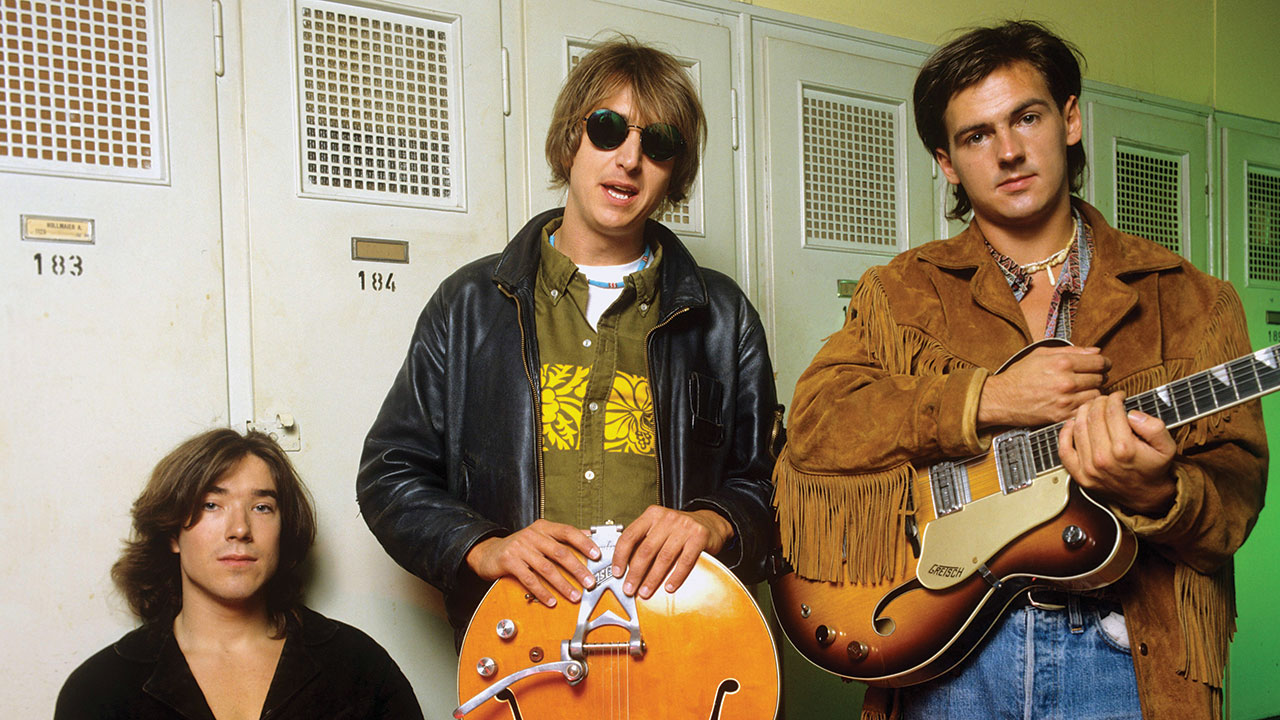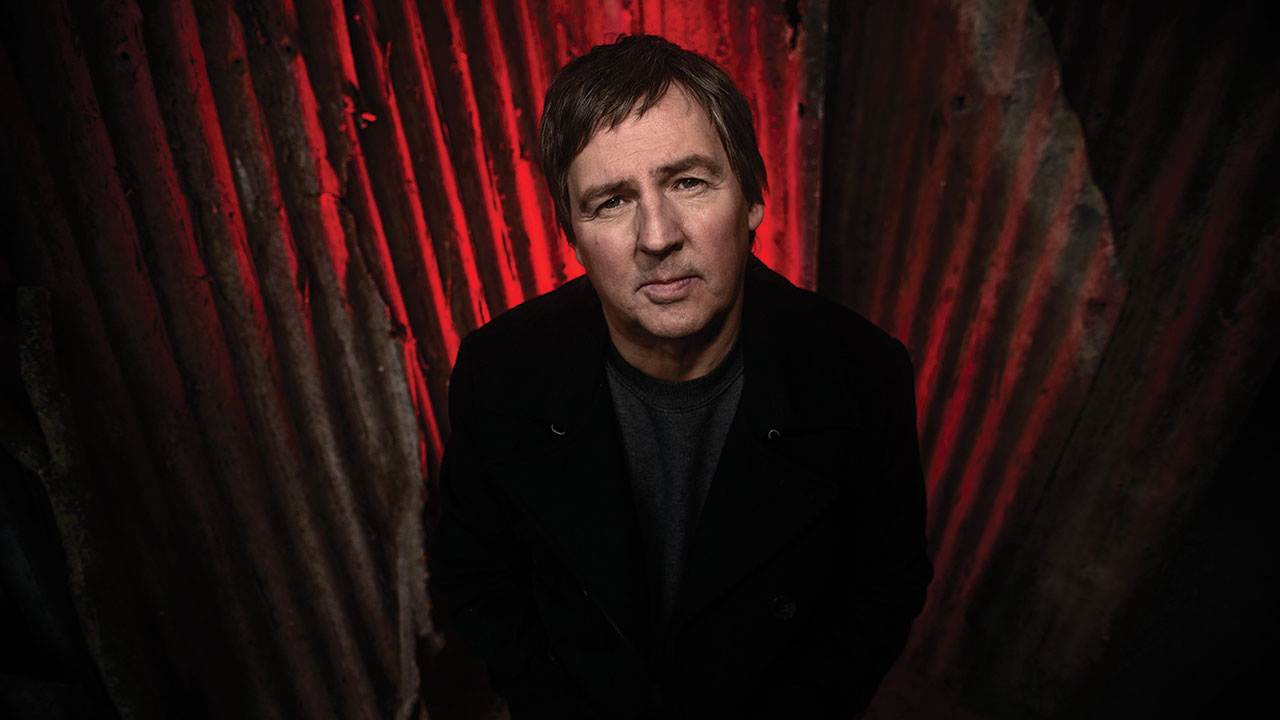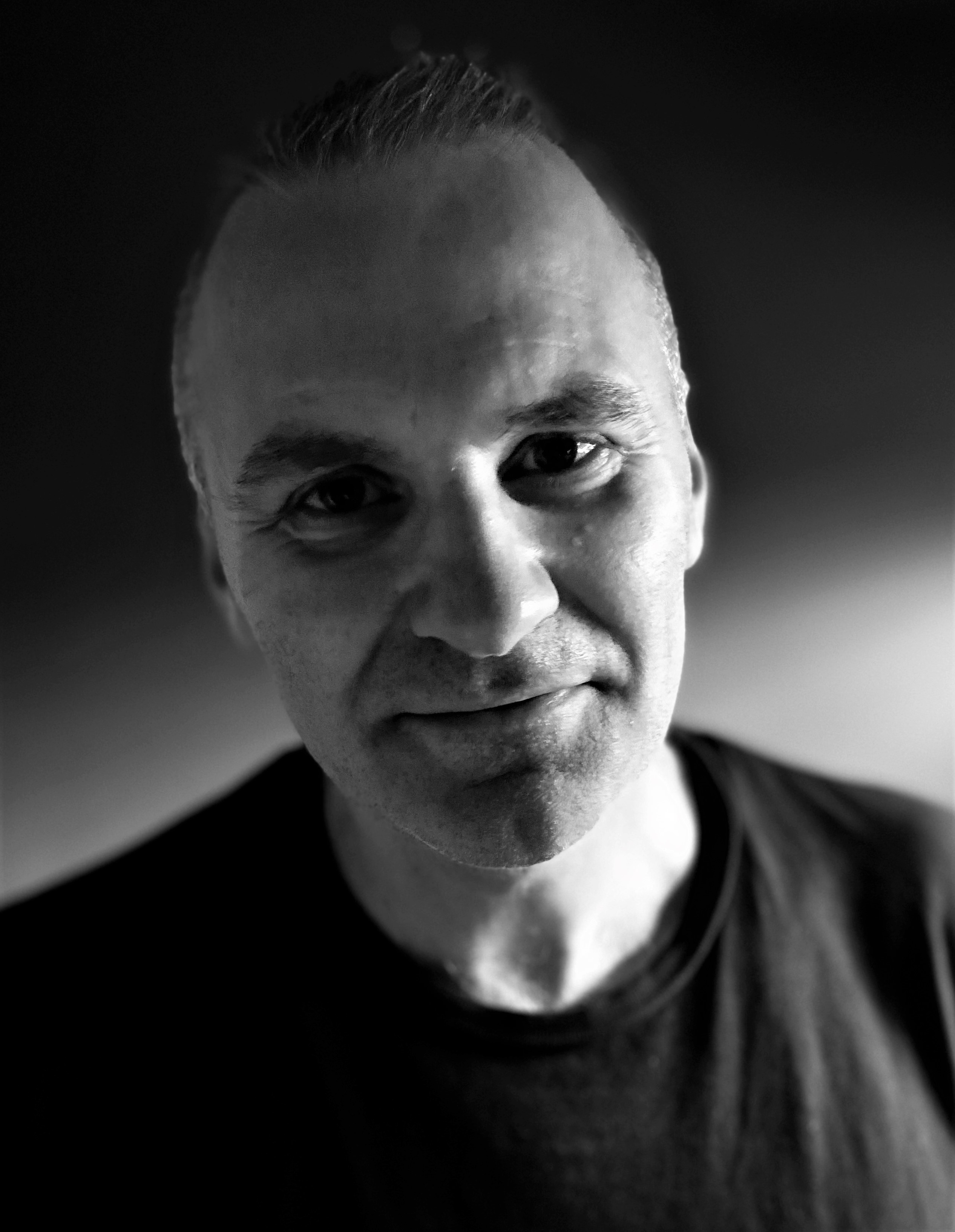Seventeen years might seem like a long gap between albums, but time moves differently when you’re in a world of your own.
Since the release of 2002’s Out Of Season, the first Rustin Man album (in collaboration with Portishead’s Beth Gibbons), Paul Webb has found a way of working where music has stopped being a discrete job and instead become part of the fabric of his everyday life. The family home – “a barn in a field in the middle of nowhere,” according to Webb – has been transformed into a cunningly concealed studio space, where instruments are disguised as desks and ornaments, and mic leads worm their way into every room. “I’ve built a place where everything is possible,” he tells Prog. “I can try anything, it doesn’t matter. It’s just about feeling at ease and exploring.”
Webb has a history of musical adventurism. In the 1990s, he was one half of .O.Rang, an experimental duo who produced an exotic fusion of post-rock and Fourth World maximalism, and whose albums are ripe for rediscovery. But it’s his role as the bass player in Talk Talk for which Webb is most renowned, participating in the band’s incredible journey from the melancholic synth pop of The Party’s Over to the deconstructed art rock of Spirit Of Eden. Under the visionary leadership of Mark Hollis, Talk Talk developed a unique approach to playing and recording, stripping songs back to their very essence and creating a sense of space in their music, inviting the listener’s imagination to roam at will in a three-dimensional sonic landscape.
Drift Code, the new Rustin Man album, is inspired by similar principles. While the songwriting is more traditional than those last two Talk Talk records, there’s nevertheless the same sense of a whole world having been created, one that’s been utterly unaffected by the vagaries of our turbulent modern age. For Webb, “Music is a utility – it’s about taking someone to a place they haven’t been to before.”

Drift Code sounds timeless, its nods to various periods in musical history less retro styling and more about returning to a source of artistic truth. Whether it’s the pastoral darkness of Vanishing Heart, the Vaudeville blues of Judgement Train, the Canterbury-esque swing of Our Tomorrows, or the sinister cabaret of Light The Light, the moods and textures these songs evoke feel incredibly vital and alive.
It’s remarkable that Webb has managed to capture this feeling given the album’s lengthy gestation, but it has much to do with his method of recording. Rather than complete one song then move onto the next, Webb has deliberately taken a more painterly approach, building up his sound palette layer by layer. Working from basic demos and the percussion tracks laid down by ex-Talk Talk drummer Lee Harris (Webb’s partner in .O.Rang), he recorded the bass parts for all the songs, then the guitars, then the keys, et cetera.
“The interesting thing was that returning to track one again was like hearing it as a fresh track. I hadn’t lived with it for months, so you have a different perspective on it,” says Webb. “You go back to the song and wonder, has it improved? I carried on doing that, until you wake up one morning, listen to a track and think, that’s finished.”
Webb continues, “The amazing thing about this record, when I look at the time it took and at what I recorded, is how for instance I never changed the guitar parts – all I did was edit them and create space for something else. There’s no instrument that I wasted time on doing. The guitar part that was recorded is what’s on the track.”
Rather than getting bogged down in details, it was the sense of distance created by working over an extended period of time that allowed Webb to trust his instincts. “It became not me. It’s not about me as a guitarist, it’s just a guitarist playing on the record. It’s not even me playing it anymore.”

other key part of the recording process involved Webb finding his voice. While he had sung in both Talk Talk and .O.Rang, this is the first time that his vocals have taken centre stage. It’s an apposite image, because Webb approached each song
as an actor portraying a character – once again, accessing a ‘truthful’ performance by disassociating himself from the process. The results are tremendous, a more weathered take on the Robert Wyatt school of English soul, which begs the question: why hasn’t he sung properly before?
“You know what, I think I’m just a late developer!” Webb says. “It’s just taken me all this time to find my feet. This is the first time I’ve written songs for my voice.”
While the songs on Drift Code all pack an emotional punch, Webb emphasises that he is playing various characters throughout: “That’s what sees me through it. I’ve experimented with singing on a personal level, but it feels claustrophobic to me. Earnestness is a very hard thing to portray when you’re singing. Mark and Beth have it, they’re both pouring their heart out. But for me, it’s more about Tom Waits and David Bowie, it’s about storytelling. It’s the same as going to the theatre and seeing a really strong performance – but when the actors walk off stage, they’re back in their lives again. I think of it like that.”
Just a few weeks after the release of Drift Code came the news of Mark Hollis’ death.
“I was very saddened and very shocked,” says Webb. “The world does feel different without him here. The outpouring of love for him and the band, that was overwhelming.” Hollis’ total retreat from the music industry to spend more time with his family seemed a bold and perplexing move to many, but made sense to Webb: “Knowing him, I’m not surprised at what he did; he always had control of his life and how he wanted to live it. He was so passionate about music, so intense – but it was something that took it out of him as well. He’d done what he’d set out to do. I think he knew when to stop.”
Webb remembers, “He was like a mentor, he inspired me to go on and do what I did. He’d play me records like Miles Davis’ Sketches Of Spain and Van Morrison’s Astral Weeks, and just tell me what he loved about them. Mark liked Traffic, Can, Weather Report, and he was also into King Crimson, as was I… all that Mellotron. In The Court Of The Crimson King was a big reference point for Talk Talk.”
Webb finds it difficult to define exactly why Talk Talk have become such an influential band, but still remembers how special Spirit Of Eden felt to him: “From the minute I heard the demos from Mark, Tim and Lee, I absolutely loved it; there was such a feeling of space in it. When the mix was finished, it felt like the best thing we’d ever done. I was so confident that everybody outside the studio would think the same. I was shocked that it wasn’t received that well when it was released. The record company definitely didn’t like it.”
Hopefully, it won’t take so long for Drift Code to find its audience, with plans underway for Rustin Man to play live. “It’s early days, but I’d love to do it. It’ll be quite funny fronting a band, that’ll be a new one.” Webb also reveals that a total of 18 songs were worked on during the Drift Code sessions, with the album tracks being the first to have “gone over the finishing line”. He’s currently working on completing the remaining nine. So there won’t be such a big gap until the next album?
“Oh no, I’m in the fast lane now!”
This article originally appeared in issue 103 of Prog Magazine.

